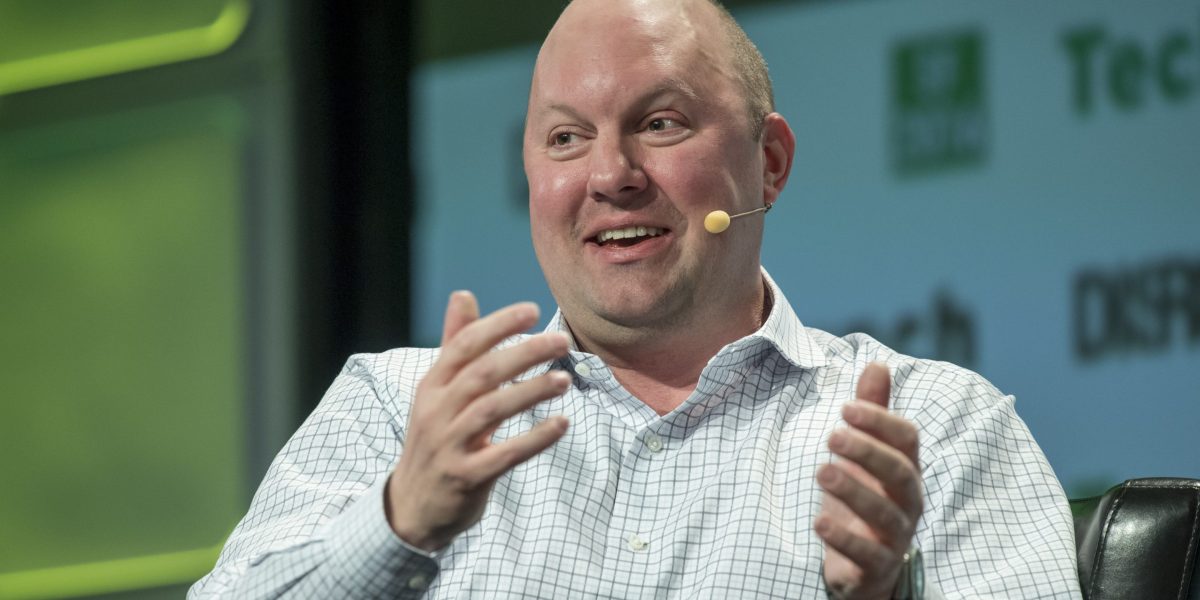[ad_1]

Marc Andreessen thinks A.I. could lead humanity to a utopia of shared wealth and super productivity. The billionaire venture capitalist just published a 7,000-word manifesto about how and why the technology will vastly improve everyone’s lives.
Andreessen is the creator of the first widely used web browser, Mosaic, and is cofounder of Silicon Valley venture capital firm Andreessen Horowitz. He previously asserted that “software is eating the world,” and now says A.I. can save it. Here’s why.
Augmenting human intelligence
Andreessen thinks A.I. will transform human quality of life by supercharging performance, from medicine to the arts. In his vision of the future, every child will grow up with an A.I. tutor that educates with “the machine version of infinite love.” Likewise, every person, including political leaders and scientists, will have an A.I. assistant to maximize their potential and provide support and guidance.
A.I. will aid the development of new technologies, breakthrough scientific discoveries, and a golden age of creativity, Andreessen wrote.
“A.I. art gives people who otherwise lack technical skills the freedom to create and share their artistic ideas,” Andreesen wrote. “Talking to an empathetic A.I. friend really does improve their ability to handle adversity. And A.I. medical chatbots are already more empathetic than their human counterparts.”
The billionaire added that with A.I.’s help, humanity can eventually solve the climate crisis and explore space. He also said that A.I. could be used to mitigate wartime death rates by making better tactical moves, “minimizing risk, error, and unnecessary bloodshed.”
Lower prices and higher wages
Andreessen wants to debunk the “lump of labor fallacy” that there is only a fixed amount of work to do in an economy at any time. Contrary to popular sentiment that A.I. will put people out of work, the investor wrote, machines doing work won’t leave less work for people to do. Instead, it will lead to productivity growth, he said. That means that less labor will be required for the same or more output of goods and services. Andreessen predicts that this will bring about lower prices, extra spending power, and ultimately higher demand that will fuel economic expansion. New industries will arise to employ people whose original jobs were assumed by A.I.
“A technology-infused market economy is the way we get closer to delivering everything everyone could conceivably want, but never all the way there,” Andreessen wrote. “And that is why technology doesn’t destroy jobs and never will.”
And what if A.I. continues to advance, becoming ever more capable and constantly eliminating more jobs? That would be the ideal, according to Andreessen.
“Suppose A.I. once again replaces that labor? The cycle would repeat, driving consumer welfare, economic growth, and job and wage growth even higher,” the venture capitalist wrote. “It would be a straight spiral up to a material utopia that neither Adam Smith or Karl Marx ever dared dream of.”
Reducing inequality
A.I. is also an opportunity to distribute wealth and benefit globally, Andreessen said. As with technologies that preceded it, access to the tool will initially be limited to the wealthy elite, but eventually will open up to everyone, he wrote.
According to the billionaire, greed will motivate A.I. companies to continue disseminating their product to maximize the size of their market. A.I. will eventually be as ubiquitous as electricity, as its developers expand their reach.
“In short, everyone gets the thing—as we saw in the past with not just cars but also electricity, radio, computers, the internet, mobile phones, and search engines,” Andreessen wrote. “The makers of such technologies are highly motivated to drive down their prices until everyone on the planet can afford them.”
In Andreessen’s opinion, the biggest risk of A.I. is not investing in it quickly enough. He calls for the U.S. to integrate the technology into society as urgently as possible to “maximize its gains for economic productivity and human potential.”
[ad_2]
Source link
